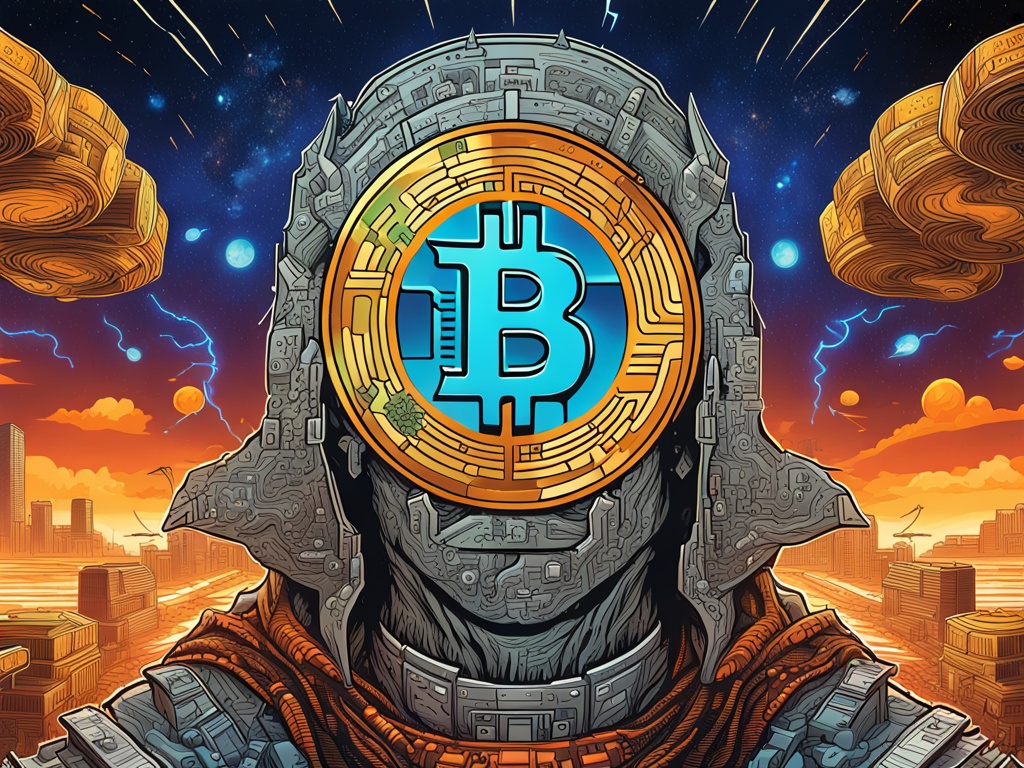What Could a Bitcoin Reserve Mean for Our Future Economy?
So, you’re interested in the crypto market and trying to wrap your head around the recent buzz surrounding Bitcoin, especially with all the talk about it being part of a national strategy, right? Let’s dive into this exciting and potentially game-changing conversation around Bitcoin and how it could impact the U.S. economy and, frankly, the world!
Key Takeaways:
- Bitcoin is being discussed as a strategic asset for national security.
- Dominating Bitcoin mining can enhance U.S. financial sovereignty.
- There’s a potential shift towards domestic Bitcoin infrastructure and renewable energy integration.
- Mining Bitcoin could create jobs and strengthen energy resources in the U.S.
Okay, first things first—there’s been a little boost in Bitcoin’s popularity, largely thanks to the political landscape. Ever since Donald Trump took the helm, his mention of a strategic Bitcoin reserve has made people sit up and take notice. It’s like, “Wait a minute, could this really be a thing?” This isn’t just about hording some virtual coins; it’s about integrating Bitcoin into our country’s economic blueprint.
Now, one of the players in this game, MARA Holdings, has come out swinging. They’re pushing the notion that if the U.S. wants to lead in the digital age, we need to take charge of Bitcoin mining. Think of it as securing a national treasure, much like our historical gold reserves. Bitcoin mining isn’t just a techie trend; it’s touted as essential for U.S. national security. Why? Because by controlling Bitcoin’s "hash rate," the U.S. can fairly prioritize which transactions happen. In simpler terms, it helps protect our transactions from being tampered with by adversaries.
Imagine being in a poker game but then realizing that the other players could change your cards mid-hand. Not a great place to be, right? That’s the vulnerability we’re talking about here. Being dominant in Bitcoin mining offers a safer seat at the table.
The Economic, Geopolitical, and Practical Implications
Here’s where it gets really interesting. MARA articulated very well how there’s a current trend of “de-dollarization” happening globally—countries looking to reduce their reliance on the U.S. dollar. Getting heavily involved in the Bitcoin space could counteract some of the risks that come with that shift. And guess what? It could also be a potential job creator, stimulating high-tech opportunities right here at home. It could lead to the employment rates soaring, which is fantastic news!
Consider:
- Domestic Bitcoin mining could support the owners of existing power plants, enhancing that energy grid we all depend on.
- It could create jobs in sectors we typically wouldn’t associate with cryptocurrencies, stretching from tech to construction and renewable energy.
And speaking of renewable energy, we’ve got to touch on that angle too! By pushing for more sustainable mining practices, we’re not only making Bitcoin greener but also ensuring that energy resources are more efficient. Joining this renewable effort in mining isn’t just a win for the economy; it’s a win for the planet.
Strategic Roadmap: A Blueprint for the Future?
Now, MARA isn’t just talking the talk; they are suggesting real actions, a kind of playbook if you will. Here are some proposed steps that could position the U.S. as a leader in the Bitcoin mining space:
- Acquiring Bitcoin as a Strategic Reserve: Similar to how we handle gold, the idea is to secure a digital asset that could protect and possibly even grow wealth.
- Increasing Domestic Mining Operations: Taking a larger slice of the global hash rate pie so other nations can’t outmaneuver us.
- Supporting Local ASIC Chip Production: Why rely on foreign suppliers when we could bolster our own manufacturing?
- Encouraging Renewable Energy Use: This one’s a biggie—making sure our mining doesn’t just contribute to emissions but instead nurtures our environment.
The Bigger Picture
MARA emphasized that this is about more than just money—it’s about putting the U.S. on the digital map, ensuring we’re not obsolete in a rapidly evolving financial system. The broader context here screams for attention; Bitcoin mining can potentially lead to an economic renaissance, driving innovation and economic resiliency.
As I wrap up this thought-provoking discussion, here’s a reflection point: if the U.S. does make the move to embrace Bitcoin in such a strategic way, how do you think our global relationships would shift? Would we see a new wave of power dynamics? It’s an exhilarating thought!
In conclusion, there’s so much ahead in the realm of Bitcoin as an asset, a tool for economic strategy, and a catalyst for job creation. If you ever find yourself dipping your toes into investing, consider the bigger implications behind the coins. What kind of world will we build as we redefine the relationship between finance and technology? The future’s bright, and who knows—maybe it all begins with a simple block on the chain!
I hope you find that enlightening! Let’s grab a coffee soon and chat about what you think of this frenetic world of crypto.





 By
By
 By
By
 By
By
 By
By

 By
By